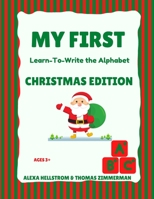Mastering Andengine Game Development
Select Format
Select Condition 
More by Alexa Hellstrom
Book Overview
Move beyond basic games and explore the limits of AndEngineAbout This Book- Extend the basic AndEngine features without modifying any of AndEngine's code- Understand advanced technologies and gain the skills to create the ultimate games in AndEngine- Theory supported with practical examples to stimulate your imagination and creativityWho This Book Is ForThis book is aimed at developers who have gone through all the basic AndEngine tutorials and books, and are looking for something more. It's also very suitable for developers with knowledge of other game engines who are looking to develop with AndEngine. Knowledge of Java, C++ and Android development are a prerequisite for getting the most out of this book.What You Will Learn- Extend AndEngine to use and render 3D models- Integrate and use various physics engines with AndEngine- Advanced animations and their implementation in AndEngine- Lighting theory and its application for both 2D and 3D objects- Using skeletal animation with AndEngine- Use GLSL shaders with AndEngine for effects and anti-aliasing- Add sounds and effects to AndEngine using both basic and 3D audio libraries- Efficient network implementations with AndEngine for multi-playersIn DetailAndEngine is a popular and easy-to-use game framework, best suited for Android game development. After learning the basics of creating an Android game using AndEngine it's time you move beyond the basics to explore further. For this you need to understand the theory behind many of the technologies AndEngine uses.This book aims to provide all the skills and tools you need to learn more about Android game development using AndEngine.With this book you will get a quick overview of the basics of AndEngine and Android application development. From there, you will learn how to use 3D models in a 2D scene, render a visual representation of a scene's objects, and create interaction between these objects. You will explore frame-based animations and learn to use skeletal animations.As the book progresses, you will be guided through exploring all the relevant aspects of rendering graphics with OpenGL ES, generating audio using OpenSL ES and OpenAL, making the best use of Android's network API, implementing anti-aliasing algorithms, shaders, dynamic lighting and much more. With all this, you will be ready to enhance the look and feel of your game with its user interface, sound effects and background music.After an in-depth study of 2D and 3D worlds and multi-player implementations, you will be a master in AndEngine and Android game development.Style and approachThis book takes an in-depth tour of the many aspects of Android game development with the use of AndEngine. Each topic is covered extensively to act both as a practical guide as well as a reference.
Format:Paperback
Language:English
ISBN:1783981148
ISBN13:9781783981144
Release Date:September 2015
Publisher:Packt Publishing
Length:278 Pages
Weight:1.06 lbs.
Dimensions:0.6" x 7.5" x 9.3"
Customer Reviews
8 customer ratings | 5 reviews
There are currently no reviews. Be the first to review this work.












































